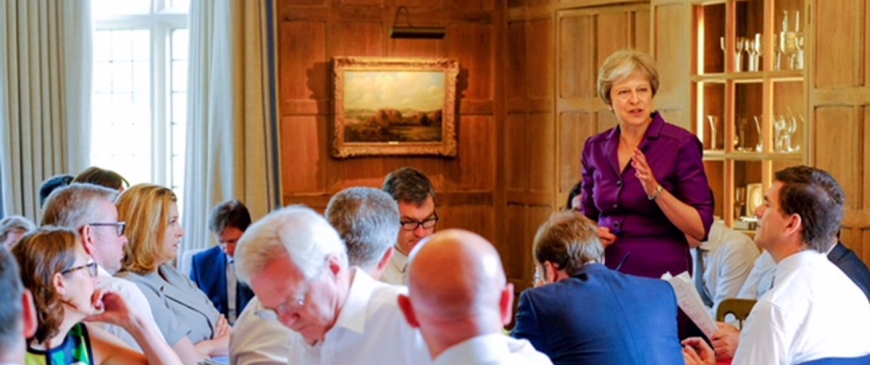
Britain's best Brexit hope is a revised Chequers plan
A Brexit deal between the EU and the UK is more likely than not, because both sides really want one. But there is a serious chance of no deal, because of differences over the Irish “backstop”. That part of the withdrawal agreement would align Northern Ireland with EU rules on customs, manufactured goods and farm products, unless other arrangements precluded the need for border checks between the two parts of Ireland.
Many EU governments assume that the UK will climb down and accept the backstop, rather than face the “cliff-edge” of no deal. But they may be wrong to assume that British politicians would take steps to avoid such an economically damaging outcome. Meanwhile, Theresa May and her ministers have annoyed the EU by appearing deaf to criticisms of their “ Chequers plan” — for a complex “facilitated customs arrangement” (FCA) and a common rule book for goods — and by dragging their feet over making new proposals. Unless both sides shift their positions, the cliff-edge will approach.
There is some convergence between the British and the EU on the nature of the backstop. Mrs May can accept the principle of Northern Ireland having different regulations from Great Britain, and thus the need for checks on trade across the Irish Sea, so long as they are minimal and occur away from ports and airports. But she argues, probably rightly, that MPs would not approve the backstop unless the future relationship entailed a common rule book, thereby obviating the need for controls on goods, plants and animals that cross the sea.
Yet the EU dislikes the UK plan for a de facto single market in goods, arguing that the four freedoms of goods, services, people and capital are indivisible; and that if the UK was free to write its own rules for services, employment and environmental standards — all relevant for manufacturing costs — its companies could steal an unfair advantage over EU producers. And the EU regards an FCA, which would in theory enable Britain to set its own tariffs yet enjoy frictionless trade, as an unworkable scheme that would encourage cheating and (once again) give unfair advantages to UK manufacturers.
Mrs May needs to redesign both prongs of her Chequers plan. On customs, she should spell out what she has already implied: that for a very long interim period Britain will be in a customs union with the EU. She has already proposed that the backstop include provisions for the entire UK to stay in a customs union temporarily; the EU said no, arguing that the backstop should concern only Northern Ireland.
Both sides might be able to sign up to the aspiration for a clever, high-tech scheme, different to an FCA, that would one day allow the British to set their own tariffs — when the European Commission certified that it worked.
As for the common rule book, Mrs May must refashion it to meet EU concerns about distortions to the level playing field. The UK should extend its scope, to cover more goods and more of the inputs that affect manufacturing costs. It should offer more automatic updating into UK law of relevant EU rules and a larger role for the European Court of Justice in enforcement.
Such shifts would upset some Conservative MPs, who do not want to the UK to be a “rule-taker” after Brexit or to forgo (for the foreseeable future) the right to strike trade deals on goods. More of them would vote against the deal. But “Chequers II” could also draw support from some Labour MPs: their leader, Jeremy Corbyn, said last week that he could back a deal keeping Britain in a customs union and protecting workers’ rights.
Could the EU swallow a revised Chequers plan? Some governments, mostly in northern Europe, indicate — in private, rather than in public — that their real problem with the common rule book is its potential threat to the level playing field, rather than the indivisibility of the four freedoms. They say they could probably live with the UK being in the single market for goods, but not services or labour.
But would the European Commission, France and Germany — which have steered the Brexit talks for the EU side, taking a line that they consider principled and the British hard — buy such a compromise? Not easily. They may stick to their principles on the four freedoms and join Boris Johnson, a leading Brexiter, in pushing for a Canada-style free trade agreement, plus a backstop that would require a border in the Irish Sea. The UK Parliament would probably reject such a package.
No deal would mean not only economic chaos in the UK, with serious repercussions for the EU, but also a hard border on the island of Ireland.
The writer is director of the Centre for European Reform.
